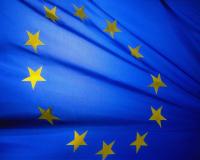Новини » Other
Car sales in Europe drop to 22 year low
Admin21.09.2012г

New car sales in Europe during August were at their lowest monthly level in more than 22 years, according to the latest research.
US carmaker Ford was hardest hit, with sales plunging 29% compared with a year ago, as consumers in Italy, Greece and France shunned new cars, recording double digit falls.
In the first eight months of the year, only the UK saw an increase in sales compared with those in 2011. Analysts are warning that sales will continue to fall as economic uncertainty remains.
Just 688,168 new cars were registered last month across the EU, down 8.9% year-on-year, an 11th consecutive monthly fall, indicating a dire year for car sales in continental Europe.
By comparison, car sales in the US are increasing, highlighted by General Motors showing record profits last year, although sales are down on pre-recession highs.
One in three car sales across Europe are in Germany, but even the EU stalwart saw a slide in sales, down nearly 5%. Sales in France dropped 11%, Italy down 20% and Greece fell 47%, according to industry analyst ACEA, which compiled the data.
The organisation revealed that August's registration of new cars was the lowest since records began in 1990. The second-lowest figure was the 700,002 new cars registered in 2010.
Ford suffered heavily, down 29%, but was not alone as BMW, Renault, Fiat and Peugeot-Citroen all suffered double-digit sales falls.
It means Ford is set to make a $1bn (£615m) loss in Europe as job security and consumer confidence hit the markets.
Nicholas Ziegelasch, global equity analyst at Killik and Co, said: "Car sales are closely linked to consumer growth and confidence. Unless you know you're going to keep your job and there is growth, you're not going to buy a car.
"The economic situation in different countries appears to be playing out in the figures, with Germany outperforming other countries, while Spain, France and Italy have suffered."
However, in the US, car sales continue to grow with Fiat, Toyota and Nissan all reporting an increase. In comparison, Fiat, which bought Chrysler in 2009 as part of President Obama's bailout for the US car industry, saw sales drop 18% in Europe.
General Motors made a record profit of $7.6bn last year, after shedding 21,000 jobs as part of the bailout. In Europe, car firms were offered incentives to keep plants open.
But carmakers are feeling the squeeze with Peugeot announcing plans to cut more than 10,000 French jobs and carry out the country's first car-plant closure in two decades.
Fiat, which shut an Italian plant last year, has warned it will close another unless it can build vehicles competitively for US export.
A handful of brands increased sales in Europe, including Kia, up 12%, Jaguar Land Rover, up 48% due to strong Land Rover sales, and VW Group, up 1.3%.
VW, which owns Volkswagen, Audi, Seat and Skoda, has the largest market share in Europe, with 28%, suggesting its rise is particularly impressive.
Ziegelasch at Killik said the German company had benefitted from a strong market in the country, with Germans tending to buy a VW.
He said: "The basic trend has been VW taking market share in Europe and across the world thanks to a combination of strong brands – Audi is now considered as good, if not better, than BMW – and with their size they are able to share a lot of components."







